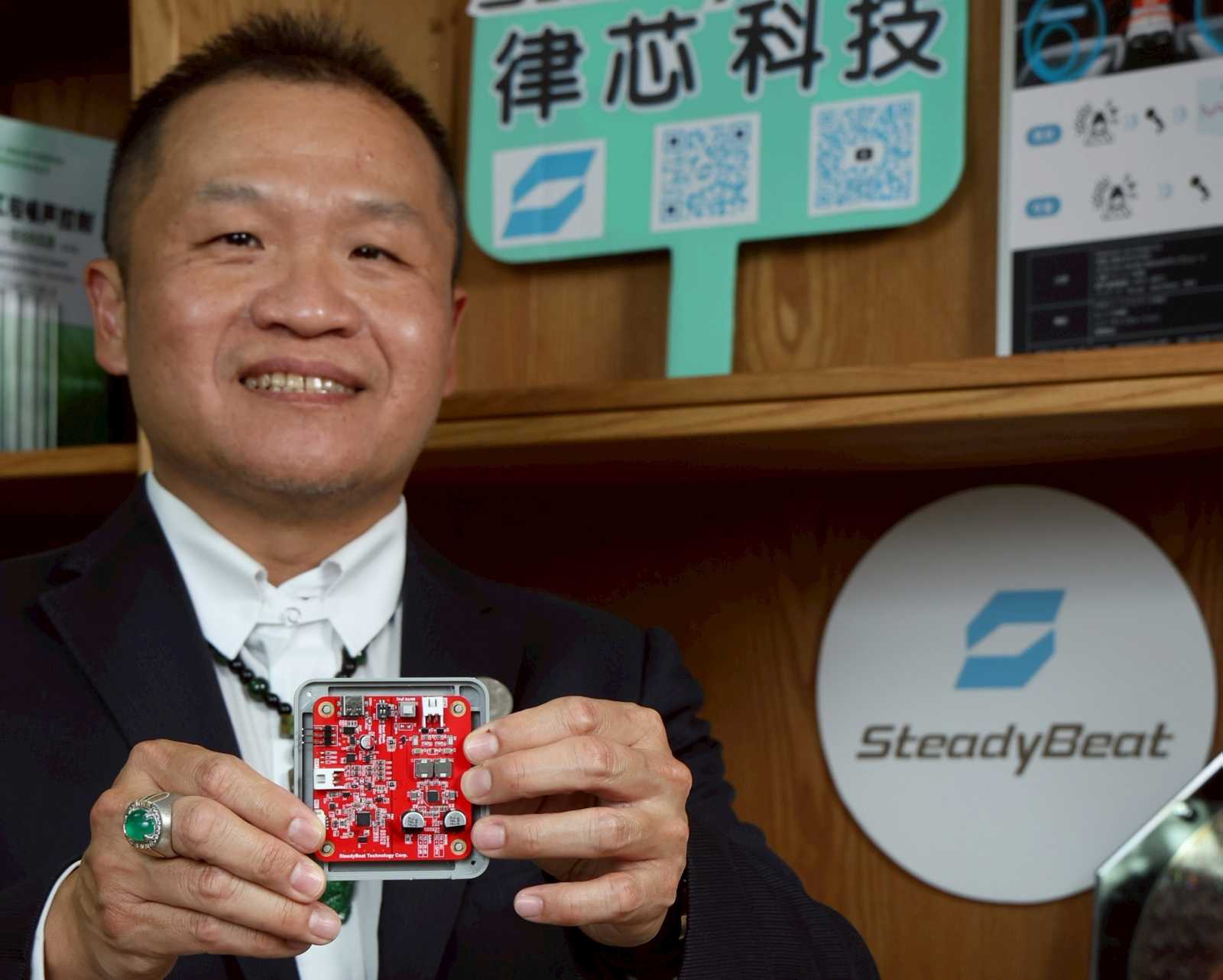MORE
Taiwan News © 2025 All Rights Reserved.
/
Hsinchu startup targets automakers with noise-canceling hardware
Sep. 3, 2025 18:04
Hsueh Tsung-chih. (CNA photo)
TAIPEI (Taiwan News) — SteadyBeat is taking on the challenge of noise cancellation without headphones, using AI to create quiet environments in cars and beyond.
The Hsinchu startup was founded in 2020 by a team of former MediaTek engineers led by SteadyBeat Chair Hsueh Tsung-chih (薛宗智), per CNA. Its first-generation chip, designed to cancel noise through speakers emitting inverse sound waves, has drawn early interest from Japanese and US automakers.
Now the company is pushing into second-generation development, adding AI self-learning to improve real-world performance.
Hsueh said SteadyBeat’s philosophy from day one was to avoid crowded markets where latecomers cannot win. Instead of chasing existing players, the company positioned itself as an innovator in acoustics, with noise cancellation as its entry point.
In its early days, SteadyBeat operated without an office, borrowing lab space from Chung Yuan Christian University in Taoyuan. It was only after TSMC agreed to manufacture its chips that the firm raised funds and opened its first office in Hsinchu in 2021.
For Hsueh, TSMC’s backing was a turning point. Having worked at the chipmaker for nearly two decades, he knew it would not waste resources on products with no potential.
The company explored home applications, from range hoods to air conditioners, but customers balked at the need for extra speakers. SteadyBeat shifted its focus to automobiles, where built-in speakers made the technology more viable and the potential market far larger.
Unlike other Taiwanese tech firms, SteadyBeat has no ties to China. Hsueh said the company has no Chinese customers, employees, or investors, making it what he calls a “non-red supply chain” business. When Chinese carmaker BYD approached about using its chips, he refused, citing concerns over counterfeiting and integrity.
However, high development costs remain a challenge. Hsueh said a 40 nm chip requires up to NT$70 million (US$2.28 million), while advanced designs at 14 nm can reach NT$300 million. For small IC design houses, he said, government subsidies are crucial to sustain innovation and compete internationally.
Looking ahead, Hsueh said SteadyBeat plans to transform sound into actionable data. He envisions a future where automobiles function as powerful computers, with its chips defining the next era of smart mobility.
Taiwan’s new digital chief outlines AI plan
Sep. 3, 2025 14:43
Taiwan industry federation urges government support in new report
Sep. 3, 2025 12:15
Taiwan's Elan Microelectronics, Academia Sinica to apply AI in drones
Sep. 2, 2025 10:46
NexRetail revolutionizes Taiwan’s retail industry with AI
Aug. 28, 2025 17:02
Taiwan’s Hotai Motor holds 165,000-vehicle sales goal
Aug. 28, 2025 12:23
Taiwan’s WebComm unveils AI fingerprint encryption chip
Aug. 27, 2025 16:27
Taiwan relaxes visa rules to lure global talent
China lashes out at Philippines over Taiwan foreign minister’s visit
Taiwan, Philippines quietly deepen security ties
Philippines looks to Taiwan as it strengthens defense strategy
Taiwan security officials warn Hung Hsiu-chu against attending China military parade
Philippines open to China talks on evacuation of workers if Taiwan is invaded
Hours cut for 1,000 more Taiwan workers, 60% due to US tariffs
Taipei launches Tamsui River waterfront redevelopment project
Map shows Taiwan's new undersea cable
Rising demand for China-free supply chains boosts Taiwan’s drone exports
Taiwan News, Staff Writer











